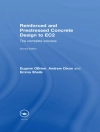Microbial technology using live, naturally occurring microorganisms in industrial wastewater treatment, is the most effective and innovative method to degrade environmental pollutants such as heavy metals, radionuclides, xenobiotic compounds, organic waste, and pesticides, or to prevent their contamination of the environment. The technology includes several techniques such as biostimulation, biogeneration, bioaccumulation, and biosorption. This book describes the limitations and challenges associated with some generally accepted bioremediation strategies and evaluates the possible applications of these corrective strategies to eliminate toxic pollutants from the environment.
The environmental contamination by both natural and anthropogenic sources is, nowadays, an international concern. To decontaminate soils, sediments, and water polluted by anthropogenic activities, scientists and technologists have developed various technologies over the years; however, not only do we have to pay a high cost for physical and chemical environmental technologies but also they sometimes are not ecological or safe. Therefore, we have realized the necessity to develop viable technologies that use microbes and plants to avoid these issues.
This book is designed for engineers, scientists, and other professionals who are seeking introductory and advanced knowledge of the principles of nanotechnology, and those who work or are interested in the environmental microbiology or bioremediation field.
Содержание
— Effect of heavy metals in sewage sludge.- Nanotechnology for Bioremediation of Heavy Metals.- Diversity, Biodegradation and Bioremediation of Polycyclic Aromatic Hydrocarbons.- Integrated Omics Approaches for Structural and Functional Characterization of Environmental Microorganisms.- Microbial Fuel Cell Assisted Wastewater Treatment- A Review on Current Trends.- Bioremediation of arsenic: Microbial biotransformation, molecular mechanisms and multi-omics approach.- Microbial Biofilms in Wastewater Remediation.- Green Nano-bioremediation Process for Ultimate Water Treatment Purpose.- Sustainable Technologies for Treatment of Industrial Wastewater and Its Potential for Reuse.- An introduction to Bio electrochemical System (BES) for Microbial electro remediation.- Phytoremediation of Metals and Radionuclides.- Phyto- & Microbial- Remediation of Radioactive Waste.- Bioremediation of petroleum sludge.- Development and implementation of the integrated technology for biological detoxication of ionic mercury in industrial wastewaters.- Phytoremediation of Metals and Radionuclides: An emerging technology towards environment restoration.- Combination of Membrane Based Biochar for Ammonium Removal from Domestic Wastewater — A Review.- Microbial remediation of synthetic microfiber contaminated waste water.
Об авторе
Dr. Maulin P. Shah is interested in genetic adaptation processes in bacteria. He has more than 350 research publications in highly reputable national and international journals. He directs the research program at Enviro Technology Ltd., Ankleshwar, India. He has guided more than 100 post-graduate students in various disciplines of life science. He is an active editorial board member in more than 150 renowned journals in the field of environmental and biological sciences. He was the founder and the editor-in-chief of the International Journal of Environmental Bioremediation and Biodegradation (2012–2014) and the Journal of Applied & Environmental Microbiology (2012–2014) [Science and Education publishing (Sci EP), USA]. He is also serving as a reviewer for various journals of national and international repute. He has edited 225 books in the area of wastewater microbiology and industrial wastewater treatment.












